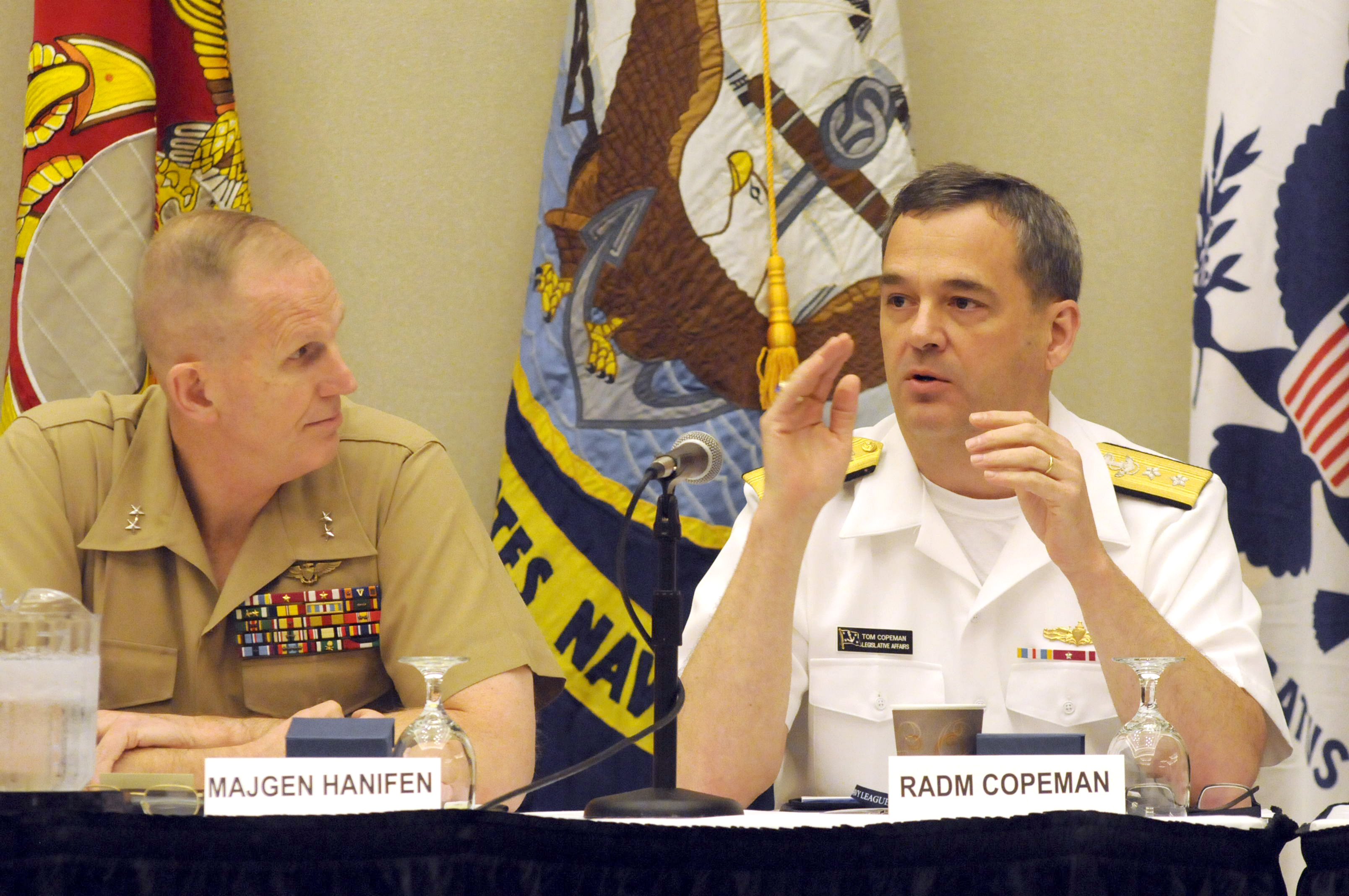Maritime leaders discuss budget woes, military cutbacks
Friday, January 1, 1904
Four top leaders in maritime service didn't hesitate to tell Navy League members Friday how looming congressional budget cuts will affect U.S. naval power.
"We can absorb a $10 billion cut a year," said U.S. Navy Rear Adm. Tom Copeman. "But our Navy will not be the same Navy."
Copeman said the Navy would have to limit work in Africa and other areas and focus on critical shipping lanes and strategic centers in the Pacific Ocean and Arabian Gulf.
Navy League national President Dan Branch didn't hesitate to exhort the nearly 200 members at the discussion in the Chattanooga Convention Center to go home and rouse local councils to lobby congressional leaders to limit budget cuts that diminish national security.
"The message is getting through," Branch said. "Speak out against cuts, particularly in the sea services."
Today marks the last day of the Navy League's National Convention, held in Chattanooga for the first time this year. More than 350 of the League's 50,000 members attended the four-day event.
The group works through 250 national and international councils to advocate support of maritime services such as the Navy, Marine Corps, Coast Guard and Merchant Marines.
Copeman and fellow panelists -- Marine Corps Maj. Gen. Timothy Hanifen, Coast Guard Rear Adm. Karl Schultz and Maritime Administration Naval Security head Kevin Tokarski -- shared their work on areas affecting American naval forces and answered audience questions for two hours.
Hanifen reminded listeners that two-thirds of the Marine Corps' budget is in personnel. The recent high of 202,000 Marines likely will be reduced with funding.
"Where that floor is will be decided by Congress and the American people," Hanifen said.
Stew Reuter, a league member from Northern Virginia, asked why it has taken years to arm commercial ships under the threat of pirate attacks.
Tokarski responded that the myriad of national policies, liabilities and debate among parties has made it difficult for many ships to do that. But some commercial ships carrying U.S. military cargo are under armed security and have, so far, been safe from pirate attacks.

